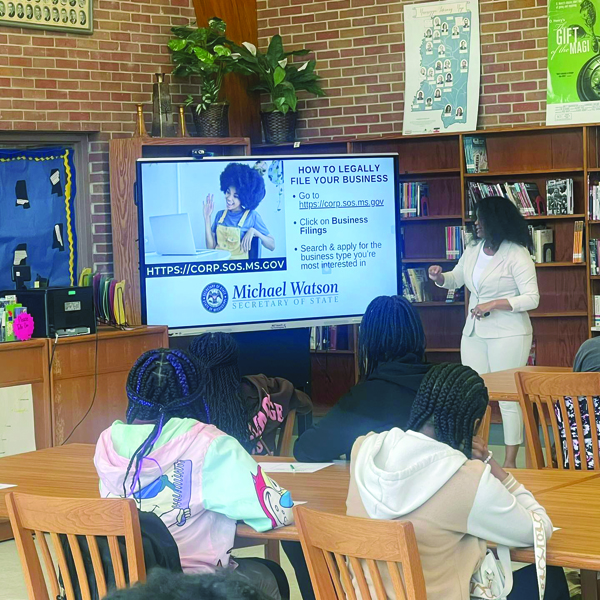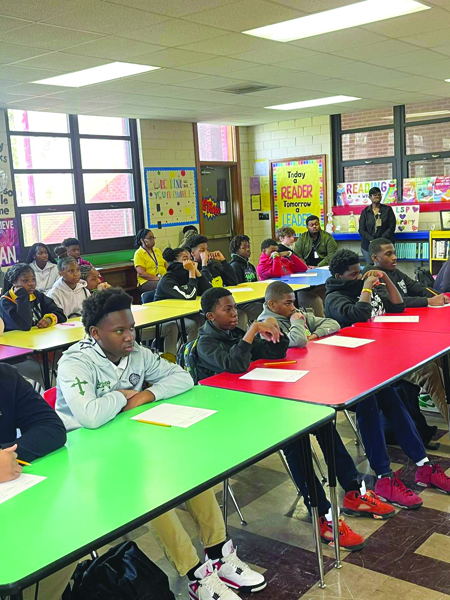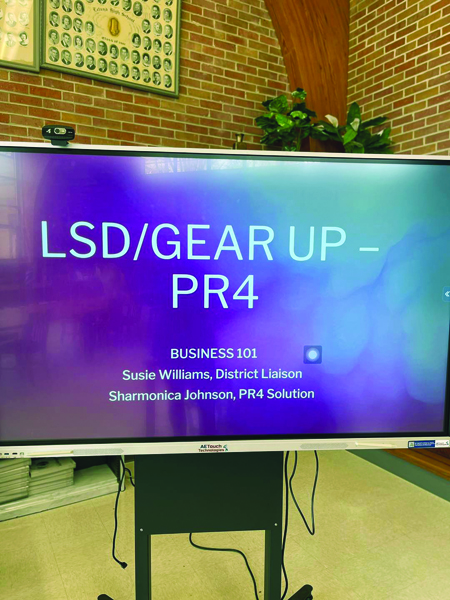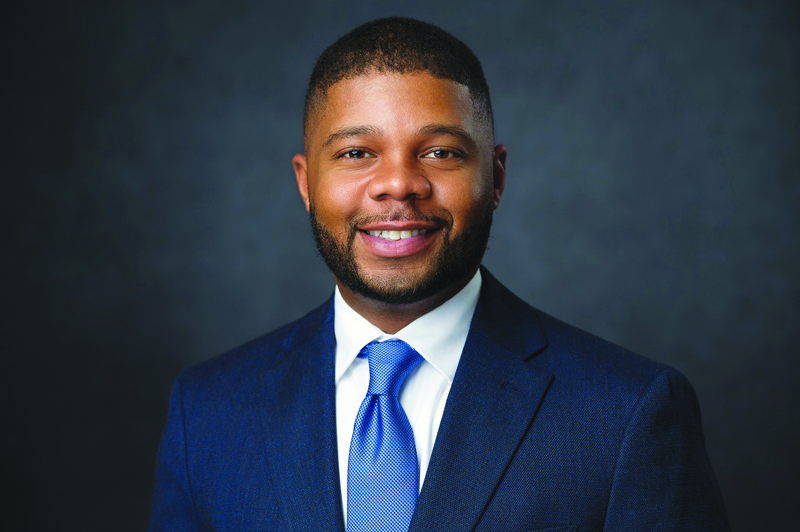Working to lift up health, education and the economy
People thriving with their health and financial security is in the best interest of the community at large. Mississippi, Louisiana and Arkansas have an estimated population of about 10.6 million, only three percent of the nation’s population of 340 million. But those three states represent about 30 percent of the poverty in the U.S., said Greg Johnson, CEO and President of the Foundation for the Mid South.
But substantial progress is being made in improving the situation. Since 2004, the Foundation for the Mid South (FMS) based in Jackson has been working in those three states to assist with public and private partnerships to lift up economic opportunities, improve healthcare and enhance educational opportunities including providing workforce training to help people get good jobs that enable them to support their families.
“For the past 30 years, FMS has been able to resource the region through public and private partnerships to the tune of more than $800 million,” Johnson said. “We know education is the ultimate gate keeper. Educational achievement has a big impact on the accumulation of wealth and participation in the political process. We also know that the combination of economic security for families and political participation critically impacts the formation and implementation of public policy related to the economy and educational policy. Building public-private partnerships is vital to improve education including providing workforce development. Critical to that partnership is the business community.”
FMC functions as a networker and convener to bring people together from the business world, the workforce development community and the institutions of higher learning to better coordinate the opportunities. There is a need to make sure that the education and degree offerings at schools are connected to the types of jobs that are new, emerging and providing a living wage.
“We are working with partners like Millsaps College, Tougaloo College and Jackson State University to bring all these groups together to coordinate across entities so we get from where we are to where we need to be,” Johnson said. “We work to help families be self-sustaining and have the opportunity to contribute to their communities. When you enable people to create wealth, that gets shared with their communities. A simple example is buying a home that leads to paying property taxes that help support the schools.”
One FMC education program that is particularly noteworthy is supporting schools in the Mississippi Delta by providing resources to parents, students and educators. An example is helping the Holmes County Consolidated School District (HCCSD) go from a failing score to a B on the Mississippi Department of Education’s Accountability Model.
“To go from failing to a score of ‘B’ is a big success,” said Johnson. “When the citizenry is educated and prepared with the skills needed to get a good job, that helps the people, their community, businesses and the government. When schools and their communities are resource-starved, the path to improvement isn’t just steep—it’s a multidimensional puzzle. But as HCCSD demonstrates, teachers can change the narrative.”
HCCSD is one of 10 Mississippi school districts in the GEAR UP partnership managed by the FMS collaboration with the support of the Casey Family Programs, Delta State University and the Woodward Hines Education Foundation. GEAR UP emphasizes college and career readiness, building a college-bound school culture and leveraging data insights to inform teaching. Johnson said there is also a focus on academic strategies and enrichment opportunities to help students learn in effective and innovative ways.



“We talk a lot about entrepreneurship with the students in our program,” said Johnson. “This past summer we hosted a workshop called ‘Is college worth it?’ for aspiring entrepreneurs. We wanted to show them success in school and in business are related. There is this idea that you don’t have to go to college to be successful. We want our students to know college is a stepping stone for those who want to step out and learn how to start their own business.”
Johnson said FMC is always excited to partner with business leaders, community leaders, policy leaders and colleges/universities to assure the alignment with opportunities that create an inclusive environment.
Sometimes solutions aren’t as expensive to launch. Rural residents can face barriers such as transportation to work. FMS provided an $80,000 grant to Boss Lady Workforce Transportation which started by providing rides for Delta residents to workplaces like the FedEx hub in Memphis, Tenn.
“The foundation’s seed funding allowed Boss Lady Workforce Transportation to evolve into a full-service transportation network operating in Arkansas and Mississippi offering families transportation to work, schools and healthcare services,” said Johnson. “Boss Lady now also includes a big focus on helping families in need. A recent initiative called Boss Giving provides food and other necessary items to women and children who are struggling to afford food or face other financial obstacles. That is a big win.”
Johnson said that program shows how small or novel investments can have an outsize impact and outcomes for the communities and region.
Another program related to lifting the economy is the Mississippi Delta Workforce Funding Collaborative, a partnership of philanthropic, public sector, private sector and community leaders working to improve job growth and retention.
“We support the development and implementation of sector-based workforce partnerships in key in-demand industries,” said Johnson. “Our goal is to increase the skills and education of unemployed and/or underemployed residents of Mississippi. We work to increase the Mississippi residents’ skills, thereby allowing them to receive better-paying jobs and better provide for their families.”
Hand in hand with that are programs that teach residents tools to manage their finances effectively and grow their wealth by accumulating and preserving long-term assets such as homes and businesses.
Another focus is on improving health. Multi-pronged efforts include programs to increase physical activity and improve access to fresh, healthy foods—healthy behaviors that can help reduce obesity. Only West Virginia has higher obesity rates than Mississippi, Arkansas and Louisiana.
Johnson said it is also important to help people identify everyday stressors and connect them to resources and services to address their mental health needs. Another priority is ensuring individuals have access to healthcare services and knowledge to make informed decisions.
FMS also works with partners to increase access to safe, affordable housing and green space and parks. There is also a focus on preserving the local environment and culture.
“The FMS believes that the solution to regional challenges lies in building the skills and knowledge of communities to transform themselves,” said Johnson. “When individuals, organizations and businesses engage in the change process, they are able to build the community they wish to see, creating vibrant places to live, work and play.”


